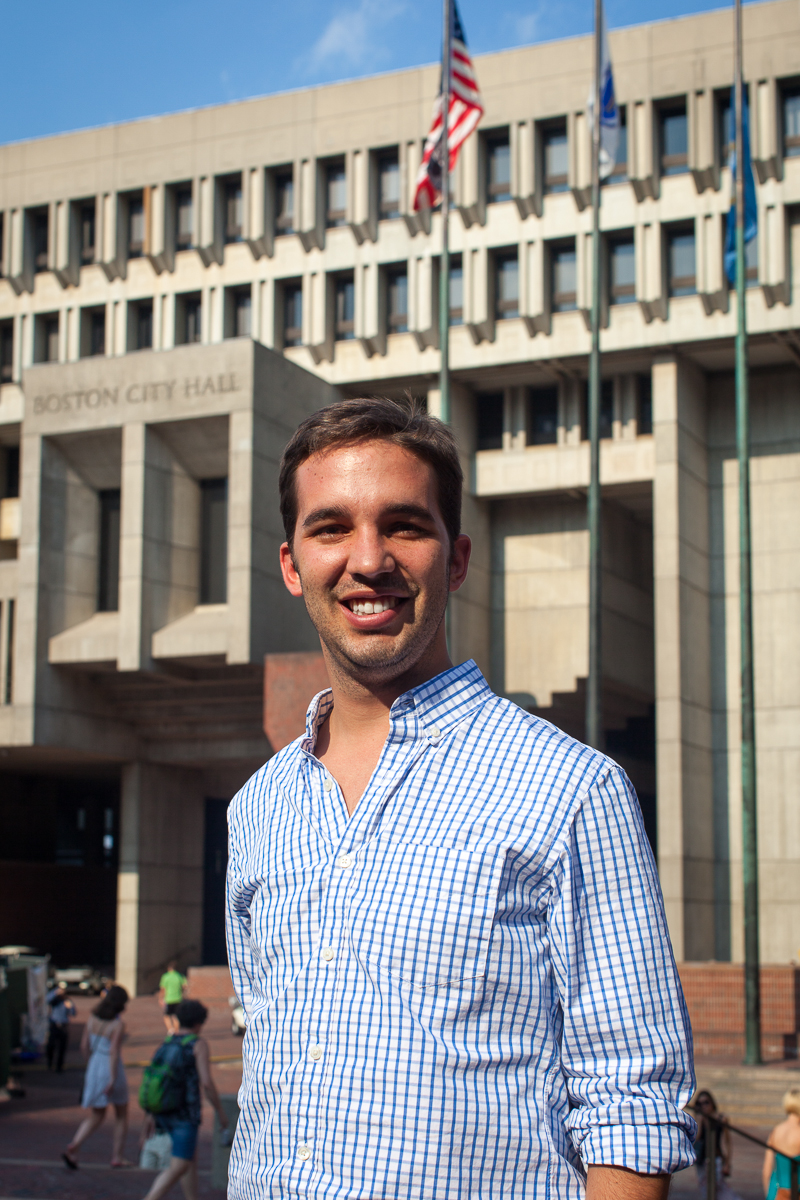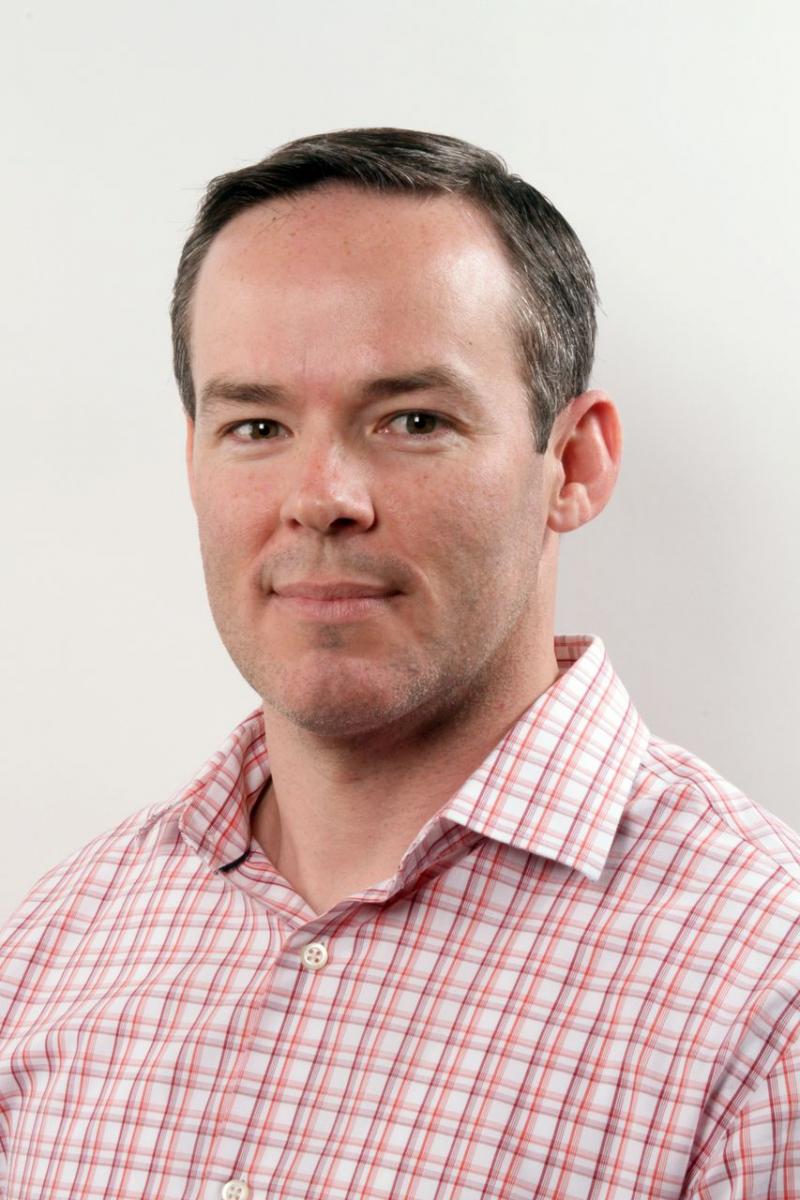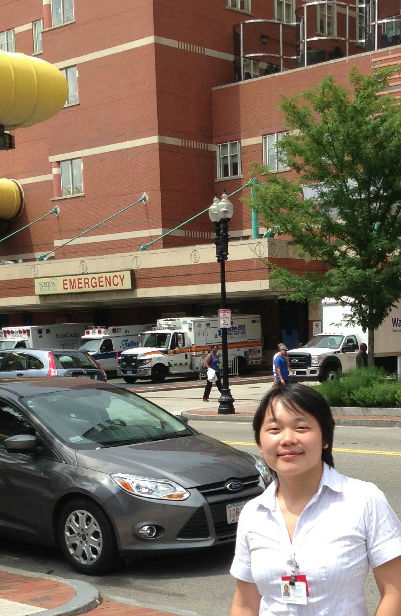EDF Climate Corps fellow | August 30, 2013
EDF Climate Corps placed almost 20 fellows in the Boston area to help identify energy efficiency opportunities this summer. Read below about Pablo, Derek and Lin and what they learned working for the City of Boston, the Massachusetts Port Authority and Boston Medical Center.
 Name: Pablo Montes Iannini
Name: Pablo Montes Iannini
Hometown: Bogota, Colombia
School: Yale University – School of Forestry and Environmental Studies, School of Management
Host Organization: City of Boston
Q: Why did you apply to be an EDF Climate Corps fellow?
A: I think that energy efficiency is one of the most effective ways to work towards sustainable energy production and consumption. I’ve done environmental work with oil and gas companies in Colombia and wanted to work on the other side of things, influencing how energy is used.
Q: What are some of the projects you’ve been working on?
A: I’m working on understanding the City’s capital planning process and determining the best time to intervene and the best tools to use when doing so to increase the adoption of energy conservation measures in new buildings and major rehabilitation projects.
Q: What is one thing you’ve learned this summer?
A: I’ve learned that the public sector has a variety of ways to measure the value of a project. There are so many factors involved in judging the value of a given project, but service provision and improving the citizen’s welfare are very important.
Q: What has been the best part of working with the City of Boston?
A: Having exposure to the public sector and the way processes work here in the United States. I’ve also enjoyed seeing how a city government can lead by example.
Q: What is the mark you want to leave on the world?
A: I want to leave a message that we’re individuals, but we’re part of a whole ecosystem, a society. It’s important to be aware of our surroundings and that there are people who are different than us and they have different values. I want to stress that all those differences should be valued. Further, I think this should translate over to our interaction with the environment. I want to make people more aware of the context in which they live.
 Name: Derek Oliver
Name: Derek Oliver
Hometown: Whittemore, MI
School: Massachusetts Institute of Technology Sloan School of Management
Host Organization: Massachusetts Port Authority (Massport)
Q: What is one interesting fact about you?
A: I went to the United States Naval Academy and then was a Marine F/A-18 pilot for 12 years. I completed one deployment to Iwakuni, Japan and a combat deployment in support of Operation Iraqi Freedom at Al Asad Airbase in Al Anbar province in western Iraq. I have consumed more than my fair share of energy as a pilot and am eager to compensate going forward.
Q: What are you working on this summer?
A: I’m trying to help the tenants of Boston Logan International Airport, such as restaurants and airlines, take on energy efficiency initiatives. There are scores of tenants that I am encouraging to become more energy efficient from small businesses to major corporate enterprises. The aviation business is energy intensive. However, a lot can be done to reduce consumption through technology and behavior modification.
Q: What is the most difficult part about tackling this project?
A: The most challenging aspect of my job is figuring out how to communicate with and incentivize the individual tenants to become more energy efficient. I do not have time in my ten week internship to convince 100 businesses to use less energy or identify specific solutions for each of them. They all have different needs and unique business models. I am trying to design a tenant energy efficiency program that will do the talking for me. The business case for each of the tenants is very different, but if I get the program design right and get the right people to come together, the conversation will continue after I am gone.
Q: What is one thing you have learned this summer?
A: The one thing I learned this summer is that organizations are challenging. I think the biggest hurdle for energy efficiency is breaking down organizational barriers. I thought the Marine Corps was a difficult organizational beast, but I am finding that all organizations, both public and private, are challenging to navigate.
Q: What is the best part of working at Massport?
A: With my aviation background, it is interesting to see the operational side of commercial air travel, and I have gained a new appreciation for its complexity. I always saw commercial air travel as the length of the TSA line or a lost bag, but now I’ve had the opportunity to see the complicated process that happens between my curbside drop off and my final destination. I have also been encouraged by the dozens of people that I have met who are really passionate about the climate and the role energy and energy efficiency plays in changing our natural world.
 Name: Lin Shi
Name: Lin Shi
Hometown: Chengdu, China
School: Yale University
Host Organization: Boston Medical Center
Q: What is an interesting fact about you?
A: I like singing and am in an a cappella group called Loggerithm at the School of Forestry and Environmental Studies.
Q: What are you working on this summer?
A: I’m working to give Boston Medical Center an idea of where they are in terms of energy efficiency and how they could achieve the 25% carbon reduction goal by 2020 pledge. I just finished summarizing the building energy consumption data and am in the process of completing the recommendations to the facilities management. Ideally we can come up with a more collaborative energy management system, which will allow us to strategize the investments.
Q: What is one thing you’ve learned this summer?
A: I’ve learned a lot about energy management in a hospital setting. There is a huge emphasis on reliability and resilience. However, energy efficiency is becoming an emerging topic and in many places considered a core part of the move toward green healthcare.
Q: What is the best part for you about working at Boston Medical Center?
A: I love the fact that my workspace is located in the hospital’s power plant. I am able to learn a lot about the fundamentals of facilities and energy management. It is very inspiring to work with an excellent facilities team who pays a lot of attention to energy efficiency and execution.
Q: What is the mark you want to leave on the world?
A: Growing up close to the pristine mountain area in Southwest China left me with a deep concern about the environment. The mark I want to leave is to strive for a better, more sustainable world by looking at our existing issues holistically.
This post is a part of our "Interviews with Tomorrow's Leaders" series. Stay tuned for more interviews with our 2013 EDF Climate Corps fellows!
About EDF Climate Corps
EDF Climate Corps (edfclimatecorps.org) taps the talents of tomorrow’s leaders to save energy, money and the environment by placing specially-trained EDF fellows in companies, cities and universities as dedicated energy problem solvers. Working with hundreds of leading organizations, EDF Climate Corps has found an average of $1 million in energy savings for each participant. For more information, visit edfclimatecorps.org. Read our blog at edfclimatecorps.org/blog. Follow us on Twitter at twitter.com/edfbiz and on Facebook at facebook.com/EDFClimateCorps.